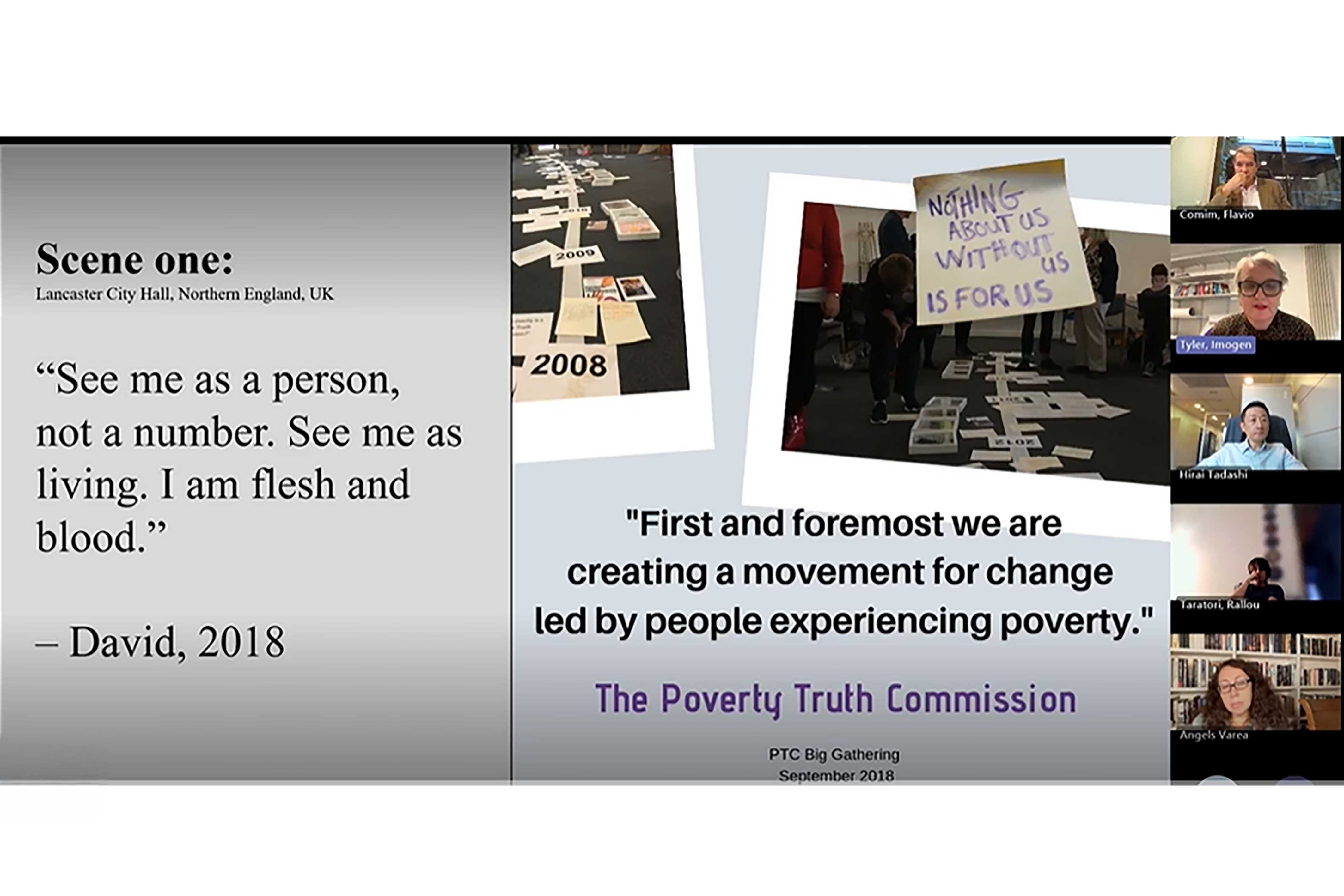Delving deeper into the analysis of aporophobia with a focus on the stigma of poverty and the growing dehumanization of the phenomenon was the main goal of the third edition of the Conference on Aporophobia, organized once again by IQS-URL with the support of the ”la Caixa” Foundation and in collaboration with a prominent coalition of academic institutions from the Ramon Llull University and key social organizations.
Experts at IQS raise awareness about the shame and self-contempt that aporophobia generates among its victims

One of the keynote lectures this year was presented by the sociologist Imogen Tyler, a renowned professor at Lancaster University, who conceptualized stigma as both a “theoretical device” and a “material and political force” that functions as a “lubricant of neoliberal capitalism.” Tyler, whose research focuses on the power of stigma and social inequalities, explained how this mechanism devalues entire groups—such as the homeless, the working poor, or vulnerable migrants—to “fortify social hierarchies” and facilitate the accumulation of capital by elites.
Through heartbreaking testimonies from the United Kingdom, Tyler illustrated how austerity and the erosion of the welfare state reduce the lives of the poor to mere “numbers,” a process that generates deep feelings of shame and self-contempt among victims, turning aporophobia into an act of social and psychological violence.
The conference, held online this year and gathering experts from a dozen countries, concluded with a consensus across philosophy, sociology, law, and economics: aporophobia is a human tendency with biological roots that, when instrumentalized by power, becomes a deeply ingrained form of violence—a mechanism of domination that perpetuates inequality in times of economic and social crisis.
Dr Flavio Comim, Dean of the IQS School of Management and an organizer and speaker at the event, emphasized that the conference made it possible to deepen the debate on how “cognitive and ethical gaps” manifest in the exploitation of people in vulnerable situations.
The viewpoint of the creator of the “aporophobia” concept
One of the most anticipated sessions of this year’s third edition featured philosopher Adela Cortina, the creator of the term aporophobia, who focused her reflection on the need to differentiate aporophobia from racial rejection (xenophobia). She illustrated this by citing examples of the “working poor” and immigrants providing cheap labour (such as seasonal workers or subcontracted staff), who, despite their contributions, continue to be scorned.
Cortina discussed the biological basis of the phenomenon, noting that preference for the familiar and admiration for the powerful are mental tendencies, not fixed determinants. “The brain is plastic and can be reshaped,” Cortina stated. According to her, the solution lies in culture and institutions: “We must create a society that cultivates the tendency to respect everyone equally, instead of valuing only those who can give us something in return.”
Therefore, the responsibility lies with society. “The question is what kind of culture we want: one that rewards the privileged, or one that nurtures respect for everyone equally, protecting the weak?” Cortina asked. For change to occur, she argued, it is crucial to foster communicative reason and personalism over individualism or collectivism.
The “Iceberg” of underreported hate crimes
From the legal field, Mª Jesús Raimundo Rodríguez, Prosecutor with the Hate Crimes and Discrimination Unit at the Spanish Attorney General’s Office, warned of the “underreporting” of crimes motivated by aporophobia, comparing the phenomenon to an “iceberg,” with most cases never reaching the authorities.
Raimundo identified the causes of this underreporting in the multiple vulnerabilities of victims and their institutional distrust, often believing their testimony will not be believed or that they will be neglected. The Prosecutor highlighted that Spain is a pioneer in the EU for incorporating aporophobia as an aggravating factor in hate crimes, but she emphasized the difficulty of proving such a motivation in court, where attacks on homeless people are often initially interpreted as mere “hooliganism or vandalism.”
Raimundo strongly advocated for harmonizing European legislation and for specialized legal professionals to combat silence and ensure protection for these victims.
Aporo Lab at IQS: an innovative observatory on aporophobia
In response to the need to quantify the phenomenon, Dr Flavio Comim, Dean of IQS School of Management, and Dr Mihály Borsi presented the project Aporo Lab, a new observatory that will develop aporophobia indicators through national surveys and Implicit Association Tests (IATs).
Comim explained that IATs measure unconscious bias by observing the speed difference with which people associate the poor with negative attributes. The observatory aims to understand the socioeconomic patterns of aporophobia and measure the degree of rejection, especially that which attributes poverty to “laziness or a lack of willpower” rather than “social injustice”, a key indicator for analysis.
A multidisciplinary approach
In addition to these featured lectures, the conference explored the multidisciplinary nature of rejection toward the poor. Research was presented on the relationship between financial exclusion and aporophobia in China, on the role of the poor as scapegoats (from the perspective of René Girard), and on aporophobia within institutions through interviews with homeless people in Barcelona. Other studies addressed energy justice and aporophobia in contexts of colonialism and territorial occupation.
Once again, the conclusions and reflections drawn from both the keynote and parallel sessions helped consolidate the conference as a pioneering space for proposing effective and collaborative strategies against aporophobia from a comprehensive perspective.
As in the previous edition, IQS-URL led the conference, with the support of the ”la Caixa” Foundation and in collaboration with the Fundación Pere Tarrés-URL, Cáritas, Fundació Assís, Fundació Arrels, Cristianisme i Justícia, Instituto Borja de Bioética-URL, Fundació Vidal i Barraquer-URL, Jesuitas Social, ESADE-URL, ESDI-URL, Observatori Blanquerna-URL, and La Salle-URL.









